Legal guide for motorhome and car campers
Planning a road trip? The last thing you want is a surprise ticket or a police stop because you didn’t know the rules. Whether you’re rolling in a motorhome, a campervan, or just sleeping in your car, the law matters. Below you’ll get the basics you need to stay on the right side of the law and still enjoy the freedom of the open road.
What you can legally do on the road
In the UK, you can park and sleep on a lay‑by or a service station for a short break – usually up to two hours – as long as you’re not obstructing traffic. Some council‑run car parks allow overnight stays, but you’ll often see a sign saying “no overnight parking” so check it first.
Wild camping is a grey area. The law technically says you need the landowner’s permission, but in England and Wales there’s a long‑standing tradition of getting away with it on uncultivated land. Scotland is different – the Land Reform (Scotland) Act 2003 gives you a legal right to camp on most unenclosed land, as long as you’re respectful and stay for a reasonable time.
Stealth camping – parking somewhere hidden and staying low‑key – follows the same rules. If you’re on private land, you need permission; on public land, you must not break any local bylaws. The safest bet is to use designated camper pitches, holiday parks, or sites that explicitly allow overnight stays.
Avoiding fines and trouble
First, always look for signage. A “no overnight parking” sign is crystal clear – ignore it and you risk a ticket. If you’re unsure, a quick phone call to the local council can save you a headache.
Second, keep your vehicle tidy. Over‑sized tents, open doors, or noisy gatherings can draw attention. A tidy setup signals you’re just taking a short rest, not running a campsite.
Third, be aware of “restricted areas” like national parks, protected wildlife zones, or private estates. Many of these places have strict rules to protect the environment, and breaching them can lead to hefty fines.
Finally, have a plan B. If you’re turned away or asked to move, know the nearest official campsite or a 24‑hour service station. Having an alternative means you won’t be stuck on the roadside after dark.
Remember, the goal is simple: enjoy your trip without getting tangled up in legal trouble. Check signs, respect private property, and keep a low profile when you’re off the beaten path. With those basics in mind, you’ll have more time to explore the beautiful UK scenery and less time worrying about tickets.
-
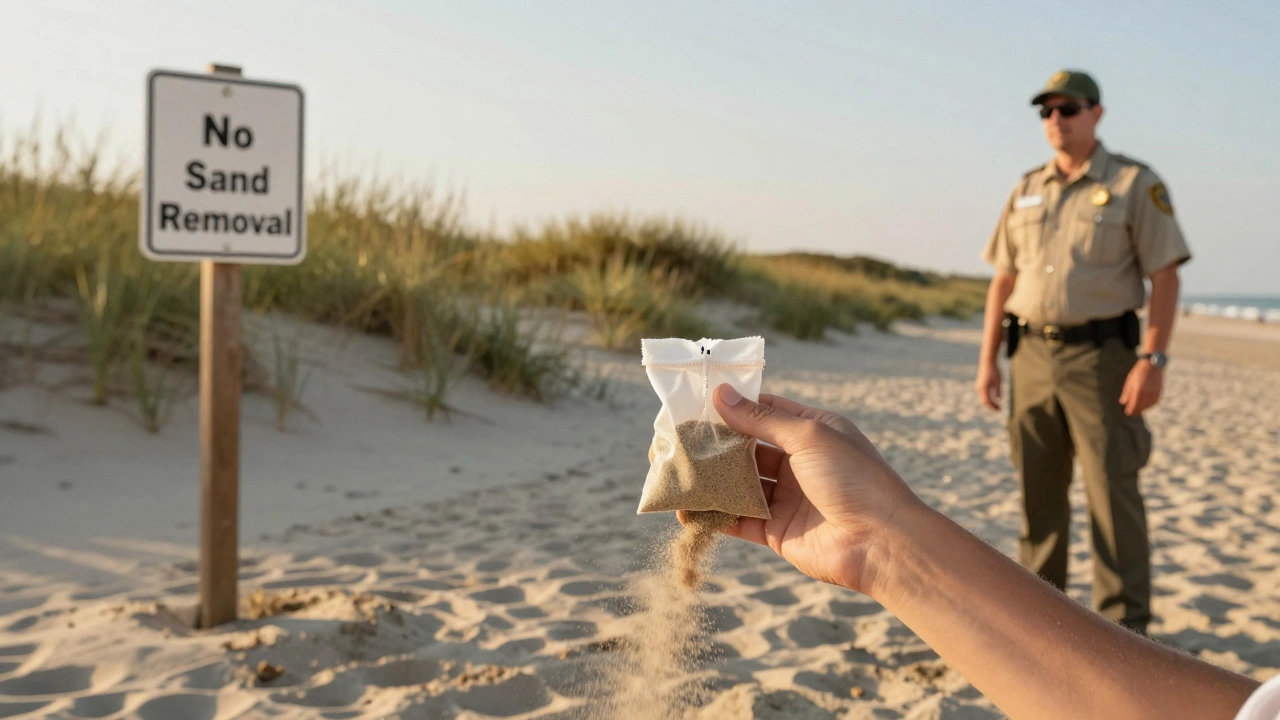 VIEW POST
VIEW POSTIs It Illegal to Take Sand from the Beach in NC? What You Need to Know
Feb, 16 2026|0 CommentsTaking sand from North Carolina beaches is illegal under state law. Learn why it's prohibited, the fines you could face, what alternatives exist, and how your small action impacts the entire coastline. -
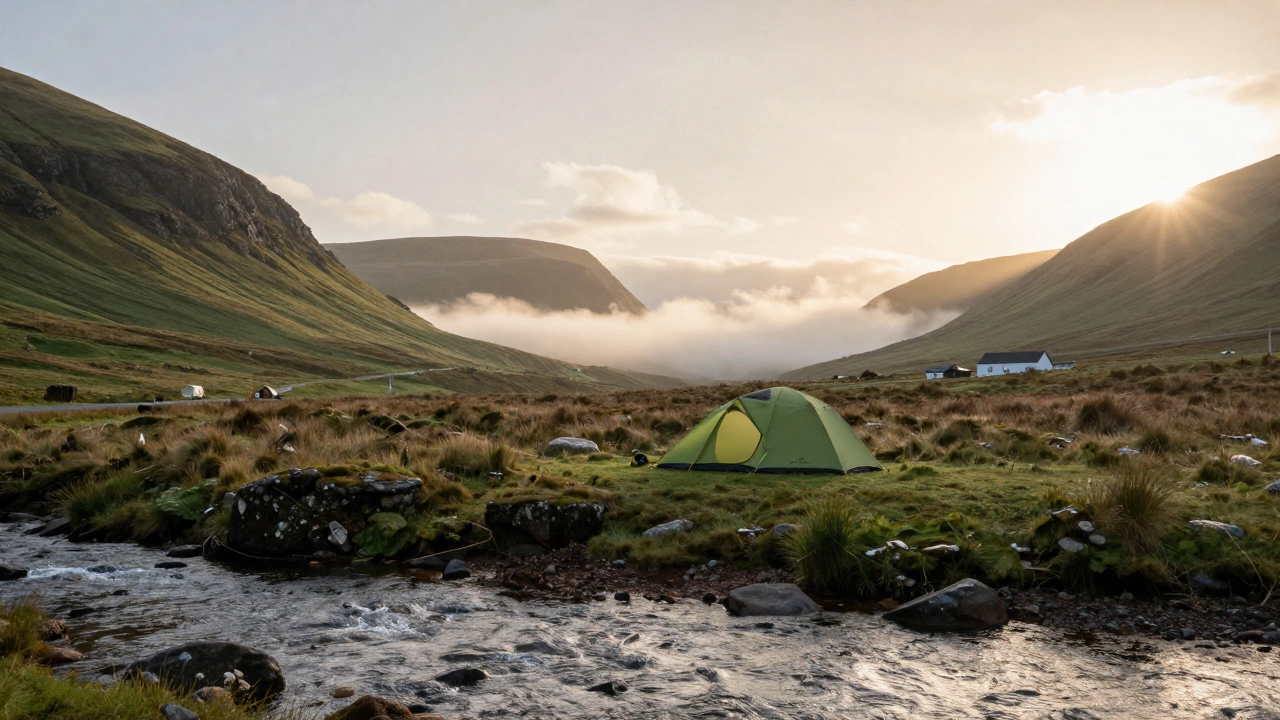 VIEW POST
VIEW POSTUK Wild Camping Laws: What's Legal and Where
Feb, 5 2026|0 CommentsThe UK's wild camping laws vary by region. Scotland allows it with guidelines, while England and Wales mostly prohibit it. Dartmoor is a rare exception. This guide explains where you can legally camp and what rules to follow. -
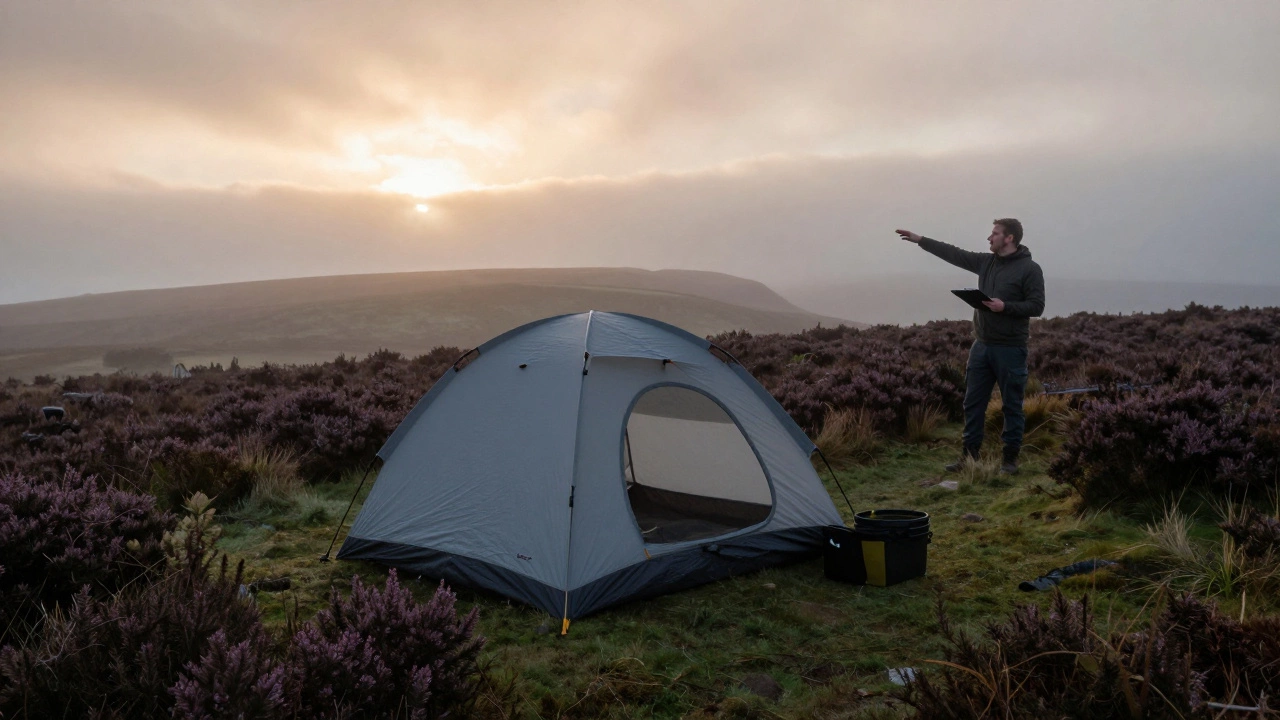 VIEW POST
VIEW POSTWhat Happens If You Get Caught Wild Camping in England?
Dec, 22 2025|0 CommentsWild camping in England isn't illegal everywhere, but without permission, you're trespassing. Learn what happens if you're caught, where it's tolerated, and how to camp legally without fines or conflict. -
 VIEW POST
VIEW POSTIs It Safe to Ride in the Back of a Motorhome? What You Need to Know Before You Go
Nov, 20 2025|0 CommentsRiding in the back of a motorhome without a seatbelt is illegal and dangerous. Learn why certified seats and proper restraints are non-negotiable for safe motorhome travel. -
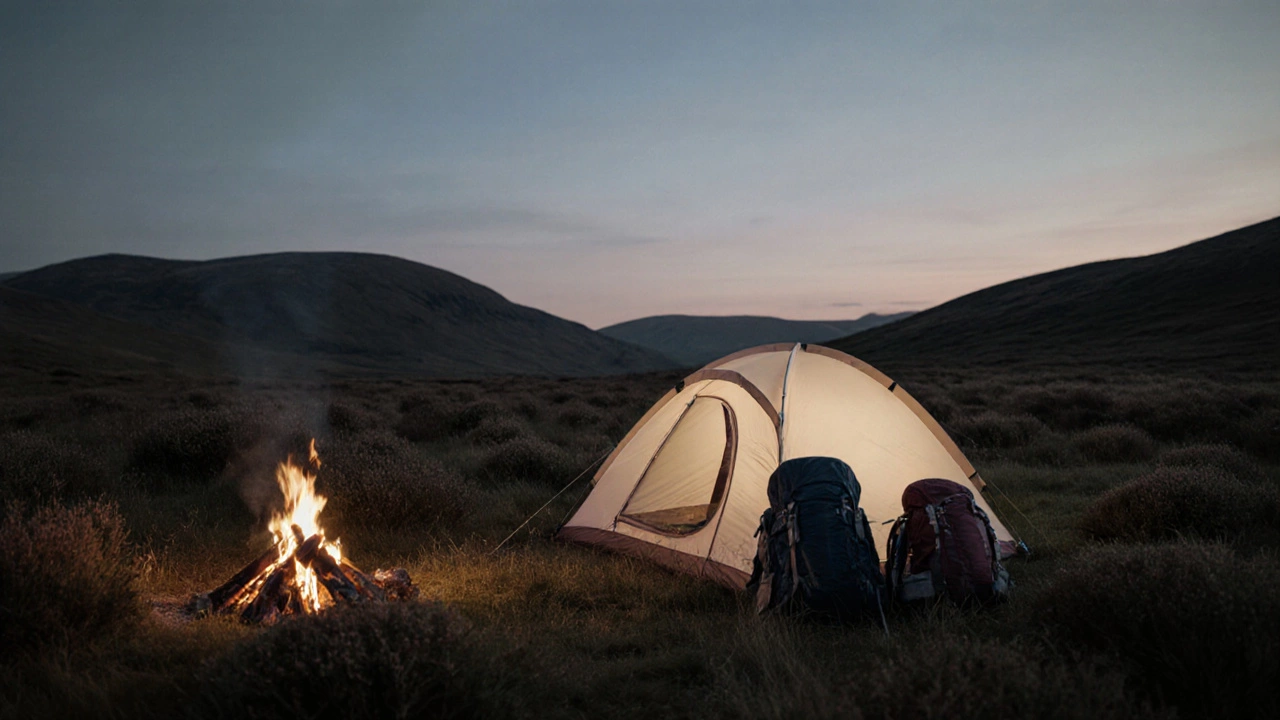 VIEW POST
VIEW POSTHow Long Can You Camp on Your Own Land in the UK Without Permission?
Nov, 17 2025|0 CommentsIn the UK, you can camp on your own land for up to 28 days a year without permission. Beyond that, you need planning approval - even if you're not charging anyone. Here's what the law really says. -
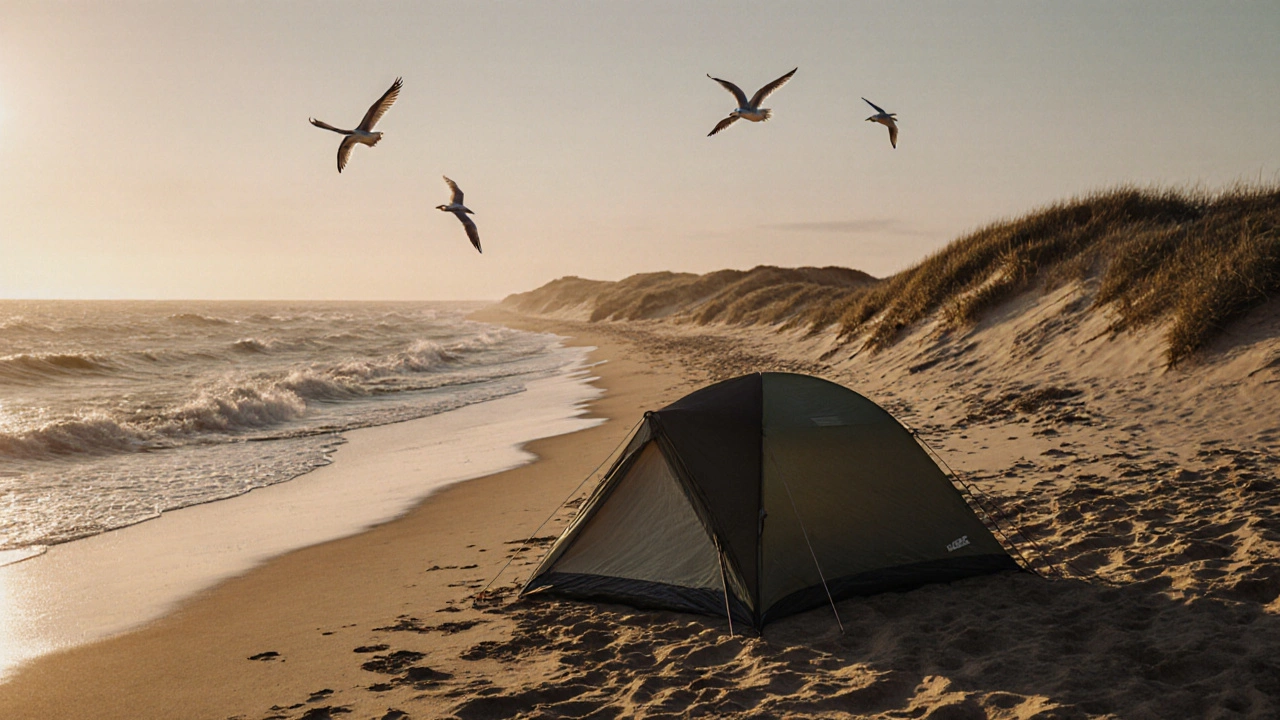 VIEW POST
VIEW POSTIs It Illegal to Camp on the Beach in England? The Real Rules
Nov, 16 2025|0 CommentsCamping on beaches in England isn't automatically illegal-but it's rarely allowed without permission. Learn where you can camp legally, what happens if you get caught, and safer alternatives for beachside nights. -
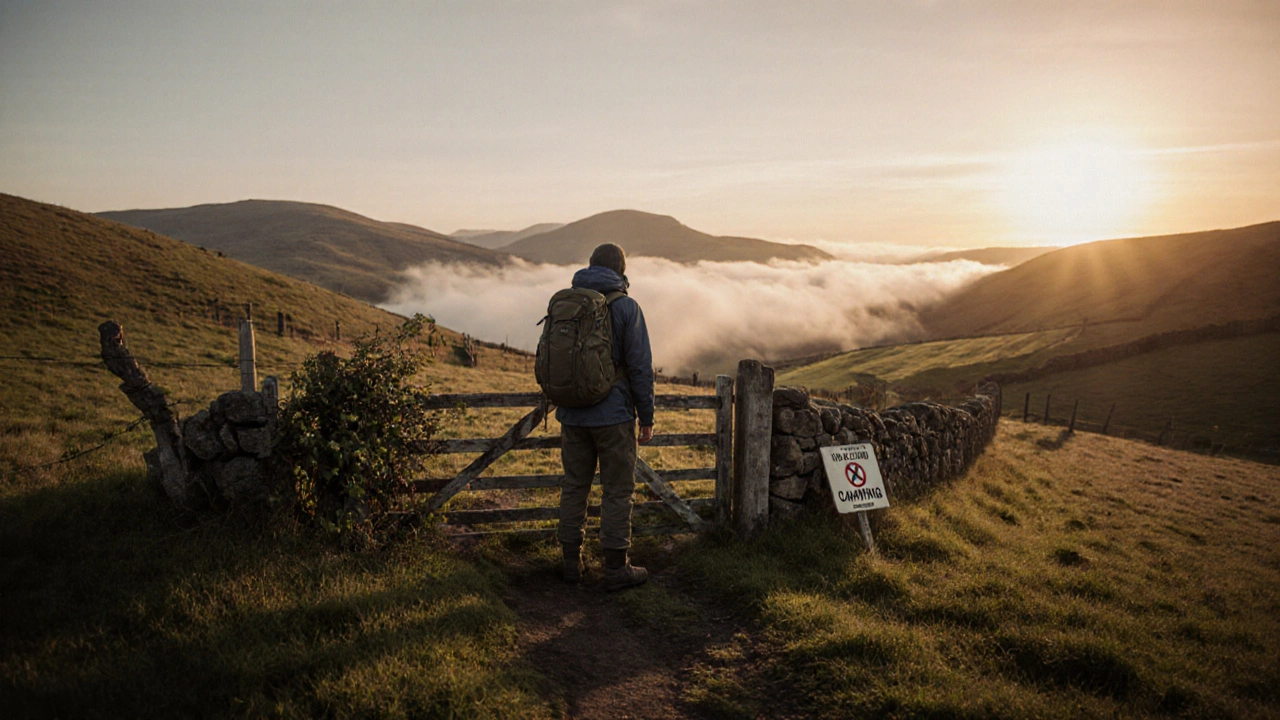 VIEW POST
VIEW POSTWhy Camping Is Illegal in England - Legal Facts, Exceptions & How to Stay Safe
Oct, 24 2025|0 CommentsExplore why most camping is illegal in England, learn the legal framework, discover where you can camp legally, and get practical tips to avoid fines. -
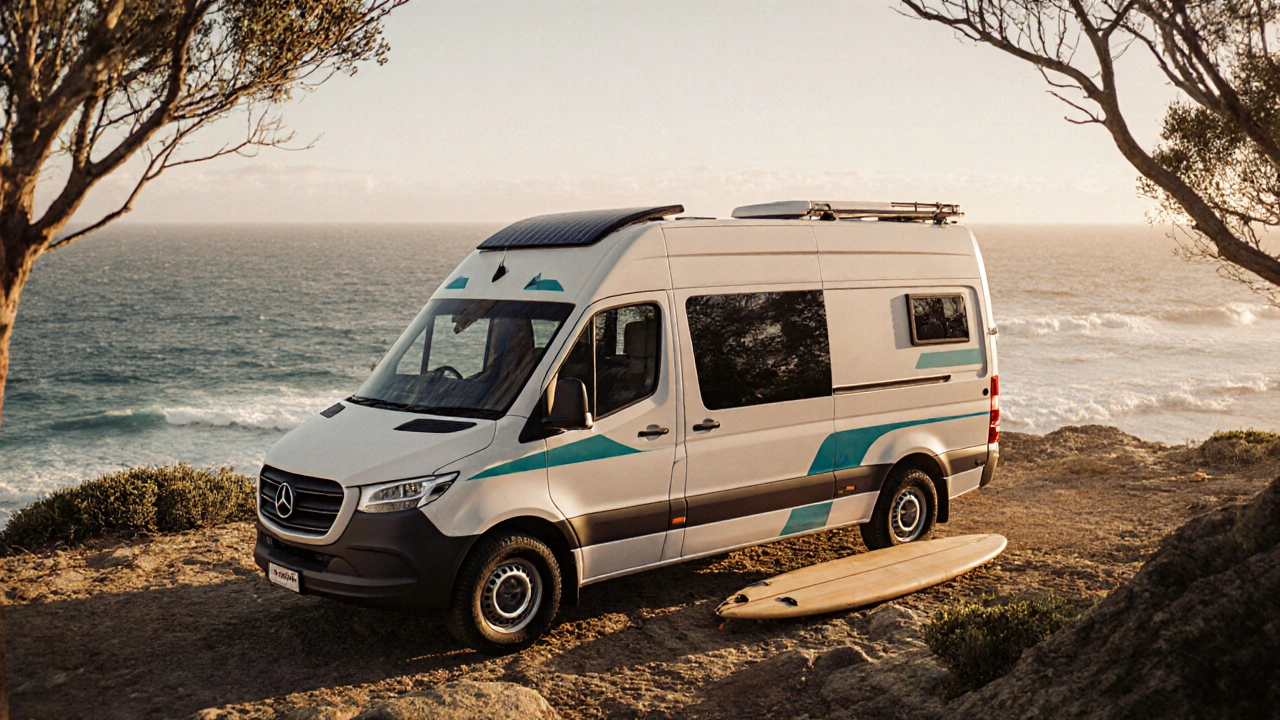 VIEW POST
VIEW POSTCan I Airbnb My Campervan? A Complete Guide for Australian Owners
Oct, 21 2025|0 CommentsFind out if you can list your campervan on Airbnb in Australia, covering legal requirements, insurance, taxes, safety checks, and listing tips for a hassle‑free side income. -
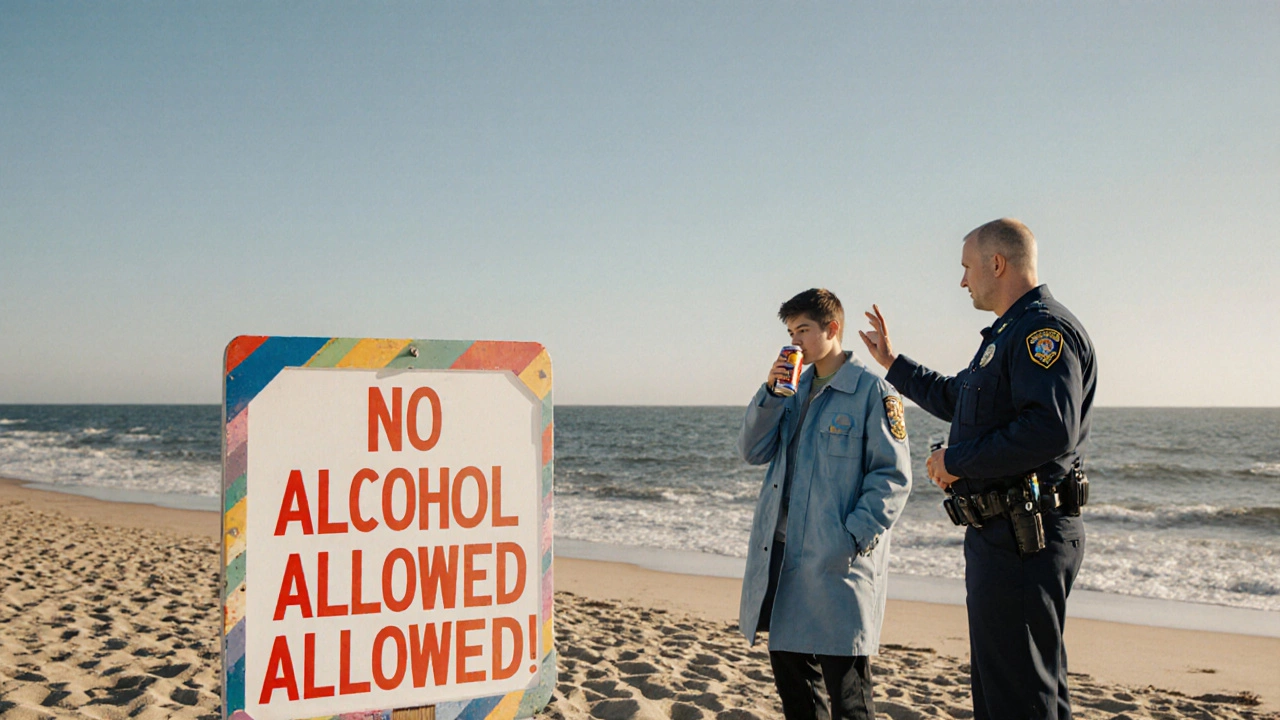 VIEW POST
VIEW POSTCan You Drink Beer on South Carolina Beaches? Latest Legal Guide 2025
Oct, 6 2025|0 CommentsFind out if you can drink beer on South Carolina beaches in 2025. Learn the state open‑container law, county exceptions, penalties, and tips for a hassle‑free beach day. -
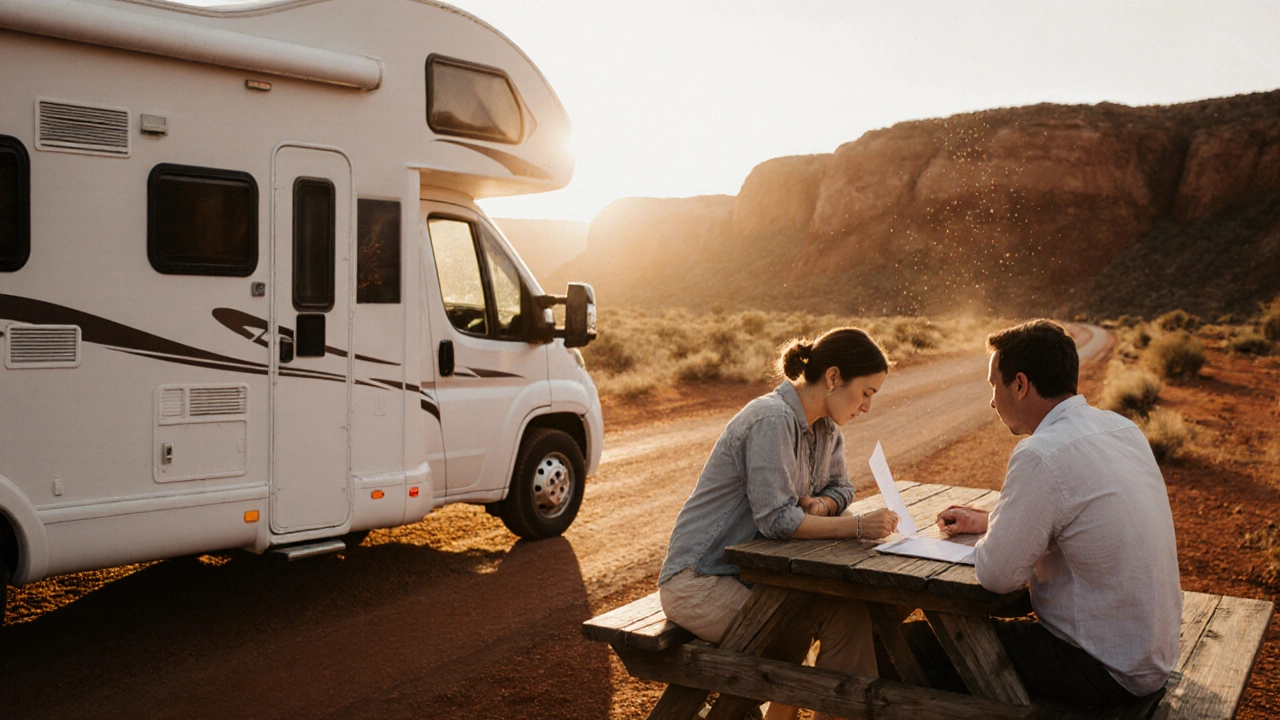 VIEW POST
VIEW POSTUnderstanding the 305 Day Rule for Motorhome and Caravan Rentals
Sep, 29 2025|0 CommentsLearn what the 305 day rule is, who it affects, and how to stay compliant when renting out motorhomes or caravans in Australia. -
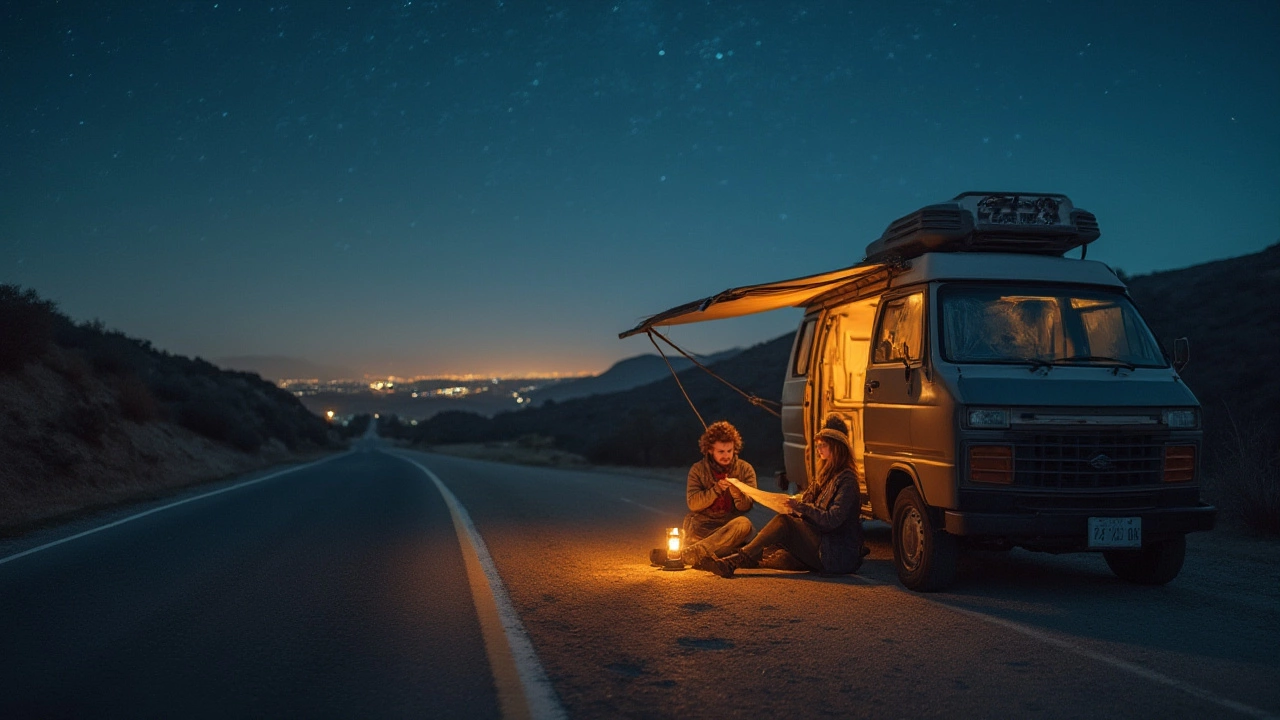 VIEW POST
VIEW POSTCan You Legally Sleep on the Side of the Road in California? Rules, Risks, and Realities
Jul, 31 2025|0 CommentsCurious if you can legally sleep on the side of the road in California? This article explains laws, risks, and smart tips for road trippers and urban campers. -
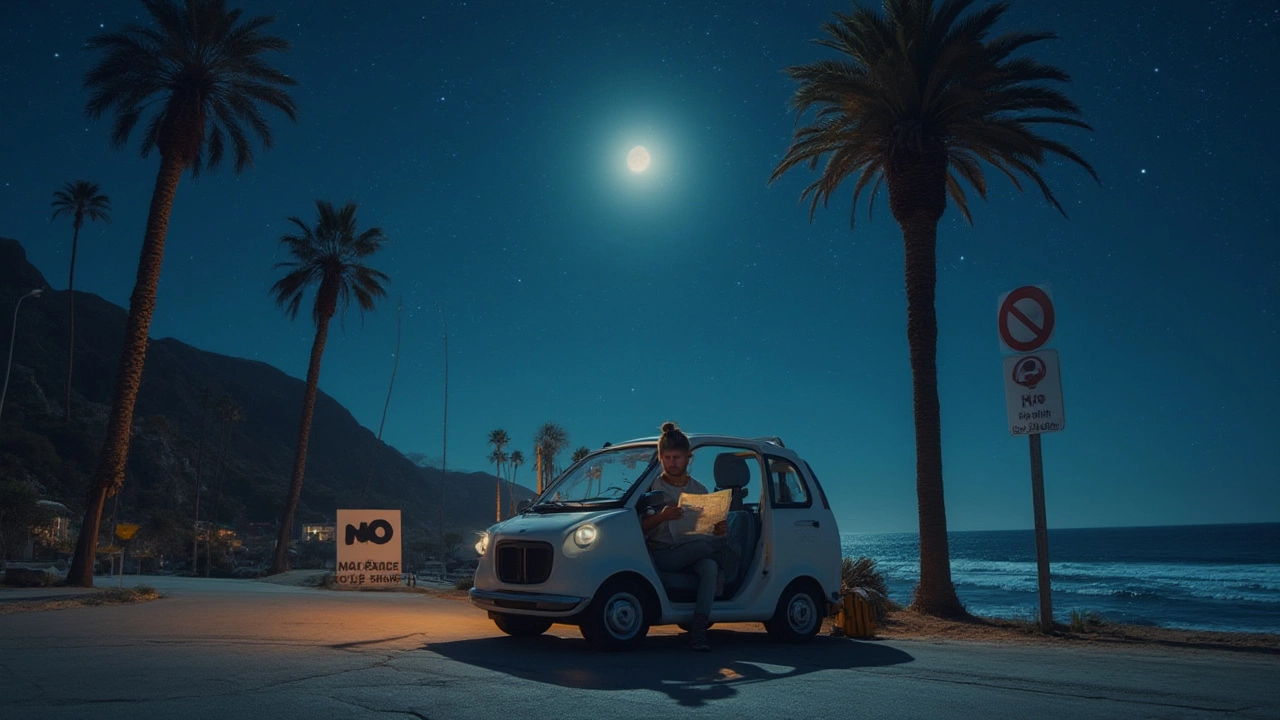 VIEW POST
VIEW POSTCan You Sleep in Your Car at California Beaches? Rules, Risks & Tips
Jul, 27 2025|0 CommentsThinking of sleeping in your car at California beaches? Here's what you need to know about local rules, risks, and smart tips to avoid fines or trouble.